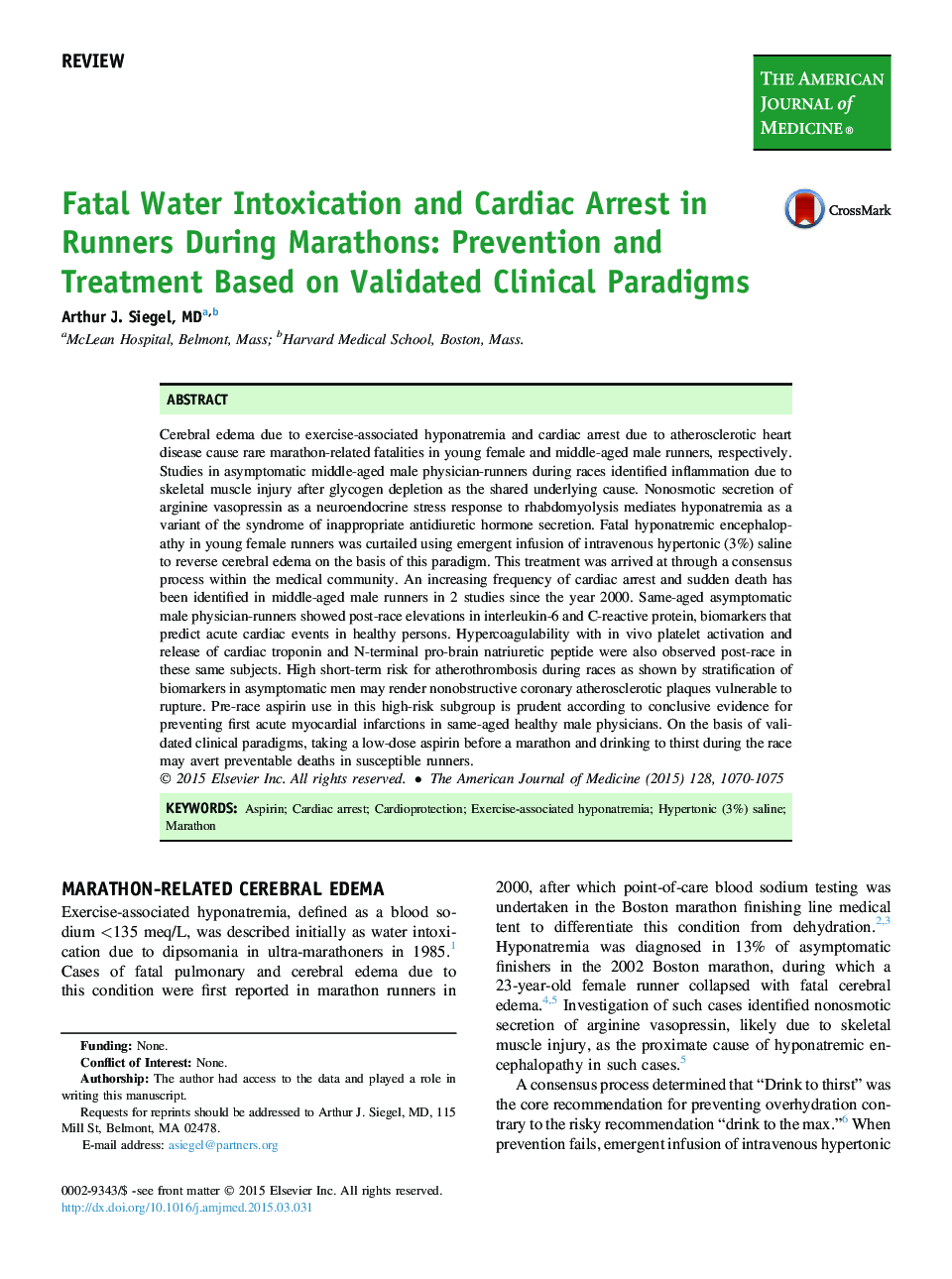| کد مقاله | کد نشریه | سال انتشار | مقاله انگلیسی | نسخه تمام متن |
|---|---|---|---|---|
| 5876779 | 1566118 | 2015 | 6 صفحه PDF | دانلود رایگان |
Cerebral edema due to exercise-associated hyponatremia and cardiac arrest due to atherosclerotic heart disease cause rare marathon-related fatalities in young female and middle-aged male runners, respectively. Studies in asymptomatic middle-aged male physician-runners during races identified inflammation due to skeletal muscle injury after glycogen depletion as the shared underlying cause. Nonosmotic secretion of arginine vasopressin as a neuroendocrine stress response to rhabdomyolysis mediates hyponatremia as a variant of the syndrome of inappropriate antidiuretic hormone secretion. Fatal hyponatremic encephalopathy in young female runners was curtailed using emergent infusion of intravenous hypertonic (3%) saline to reverse cerebral edema on the basis of this paradigm. This treatment was arrived at through a consensus process within the medical community. An increasing frequency of cardiac arrest and sudden death has been identified in middle-aged male runners in 2 studies since the year 2000. Same-aged asymptomatic male physician-runners showed post-race elevations in interleukin-6 and C-reactive protein, biomarkers that predict acute cardiac events in healthy persons. Hypercoagulability with in vivo platelet activation and release of cardiac troponin and N-terminal pro-brain natriuretic peptide were also observed post-race in these same subjects. High short-term risk for atherothrombosis during races as shown by stratification of biomarkers in asymptomatic men may render nonobstructive coronary atherosclerotic plaques vulnerable to rupture. Pre-race aspirin use in this high-risk subgroup is prudent according to conclusive evidence for preventing first acute myocardial infarctions in same-aged healthy male physicians. On the basis of validated clinical paradigms, taking a low-dose aspirin before a marathon and drinking to thirst during the race may avert preventable deaths in susceptible runners.
Journal: The American Journal of Medicine - Volume 128, Issue 10, October 2015, Pages 1070–1075
